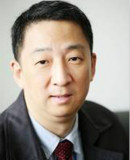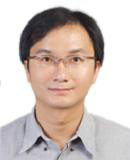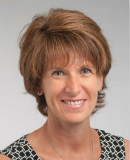Keynote

Prof. Yong Zhang
Provost’s Chair Professor, Department of Biomedical Engineering, Faculty of Engineering, National University of Singapore, Singapore
Speech Title: Upconversion Nanomaterials: Properties and Applications in Life Sciences and Medicine
Abstract:
Light has proven to be useful in a wide range of biomedical applications such as fluorescence imaging, photoacoustic imaging, optogenetics, photodynamic therapy, photothermal therapy, and light controlled drug/gene delivery. Taking photodynamic therapy (PDT) as an example, PDT has been proven clinically effective in early lung cancer, bladder cancer, head and neck cancer, and is the primary treatment for skin cancer as well. However, clinical use of PDT is severely constrained by the low penetration depth of visible light through thick tissue, limiting its use to target regions only a few millimeters deep. One way to enhance the range is to use invisible near-infrared (NIR) light within the optical window (700–1100nm) for biological tissues, extending the depth up to 1cm with no
observable damage to the intervening tissue. We have demonstrated use of NIR-to-visible upconversion fluorescent nanoparticles (UCNPs), emitting visible fluorescence when excited by a NIR light at 980nm, as a nanotransducer for PDT to convert deep tissue-penetrating NIR light to visible light suitable for activating photosensitizers. The unique optical properties of UCNPs enable the upconversion wavelength to be tuned and matched to the activation absorption wavelength of the photosensitizer. Use of these UCNPs for bioimaging and detection with high sensitivity has also been explored because most of biomolecules do not have this special upconversion property. At depths beyond 1cm, however, tissue remains inaccessible to light even within the NIR window, and this critical depth limitation renders existing phototherapy ineffective against most deep-seated cancers. We have demonstrated some new treatment modalities for deep-seated cancers based on UCNP hydrogel implants and miniaturized, wirelessly powered optoelectronic devices for light delivery to deep tissues.
...View More

Prof. Cathy H. Wu
Departments of Computer & Information Sciences and Biological Sciences, University of Delaware, USA
Speech Title: Integrative Text Mining and Semantic Computing for Data-Driven Biomedical Knowledge Discovery
Abstract:
In this talk, Dr. Wu will cover research in integrative literature mining, data mining and semantic computing for knowledge discovery. To realize the value of genomic scale data, her team has developed a semantic computing framework connecting text mining, data mining and biomedical ontologies. Natural language processing and machine learning approaches are employed for information extraction from the literature, along with an automated workflow for large-scale text analytics across documents. The ontological framework allows computational reasoning, and through federated SPARQL queries, it connects complex entities and relations such as gene variants, protein post-translational modifications and diseases mined from heterogeneous
knowledge sources. Scientific use cases demonstrate data-driven discovery of gene-disease-drug relationships that may facilitate disease understanding and drug target identification.
...View More

Prof. Congo Tak Shing CHING
College of Engineering, National Chung Hsing University, Taiwan, China
Speech Title: The use of electrical impedance for noninvasive characterization of tissues.
Abstract:
In our days impedance is significant not only in our daily life but also in medical diagnostics. Medical communities have successfully applied it to the non-invasive diagnostics of various conditions of the human body. The intention of developing non-invasive medical diagnostics (NIMD)
is to facilitate the early detection, diagnosis, and treatment of diseases. The early diagnosis and treatment of many diseases, including cancers, is critical not only for prolonging and improving the quality of life but also for reducing medical costs. NIMD can be defined as those methods used to examine the human body without invading the integrity of the body. There are lots of NIMD, like ultrasonic diagnostics, infrared diagnostics and etc, but this speech will not discuss with them. The speaker cites his own research experiences in applying impedance in NIMD. Strictly speaking, this speech will introduce the application of bioimpedance for tissue characterization, like cancerous tissue.
...View More

Prof. Lee Ann Laurent-Applegate
Department of Musculoskeletal Medicine DAL, Lausanne University Hospital (CHUV), Switzerland
Speech Title: Bioengineering for Musculoskeletal Medicine: Importance of Cellular Choice in the Swiss Cell Therapy and Transplantation Program
Abstract:
The Swiss Federal Transplantation program began in the Lausanne University Hospital in 1991 focusing on tissue of all ages from fetal to aged skin. In the late1990’s, cellular therapies were developed for wound healing studying fetal skin of different gestation periods. Research was oriented for cell selection techniques and procedures for use of cell sources in the clinic. First clinical trials using progenitor skin cells as novel cell sources began in 2000 with “biological bandages” used for pediatric burn patients followed by chronic wounds in adults (Lancet, Cell Transplantation & Experimental Gerontology).
Following the new Regulations worldwide in 2007, a new program of Transplantation for Musculoskeletal Tissues was organized along with the formal registration and an associated Biobank Program. Focus on musculoskeletal cell banks have successfully produced human bone, cartilage, disc, muscle, tendon and skin sources (fetal to old) under GLP and GMP conditions. Biological bandages, formulated with the new Directives and registered clinical cell banks, have been used routinely in the clinic particularly for severe burns in both pediatric and adult patients. The cell choice has to have low technical limitations, maintenance of differentiated phenotype and limited probability for communicable disease transmission. Out-scaling of primary progenitor cells have to be processed for Master and Working Cell banks under GMP conditions. Full characterization of progenitor cells would include assays for Identity, purity, stability and safety first through in vitro testing and then through clinical trials (Frontiers, 2020). Certain cell sources can be optimized for therapies with enhanced biomechanical properties. Establishing unique and extensive musculoskeletal cell banks supports the core belief that cell therapies will overtake classic pharmacotherapeutic management protocols for numerous traumatic pathologies. Clear advantages of allogenic progenitor cells in particular reside in the more organismrespectful and natural stimulation of damaged tissues toward restored health and function.
...View More
 Zhou.jpg)
Prof. Huiyu (Joe) Zhou
Professor Huiyu Zhou, School of Informatics, University of Leicester, UK.
Homepage: https://www2.le.ac.uk/departments/informatics/people/huiyu-zhou
Speech Title: Mouse detection and tracking by deep learning.
Abstract:
The study of mouse social behaviours has been increasingly undertaken in neuroscience research. However, automated quantification of mouse behaviours from the videos of interacting mice is still a challenging problem, where object tracking plays a key role in locating mice in their living spaces. In this talk, we present a novel method to continuously detect and track several mice and individual parts without requiring any specific tagging. We evaluate our proposed approach against several baselines on our new datasets, where the results show that our method outperforms the other state-of-the-art approaches in terms of accuracy.